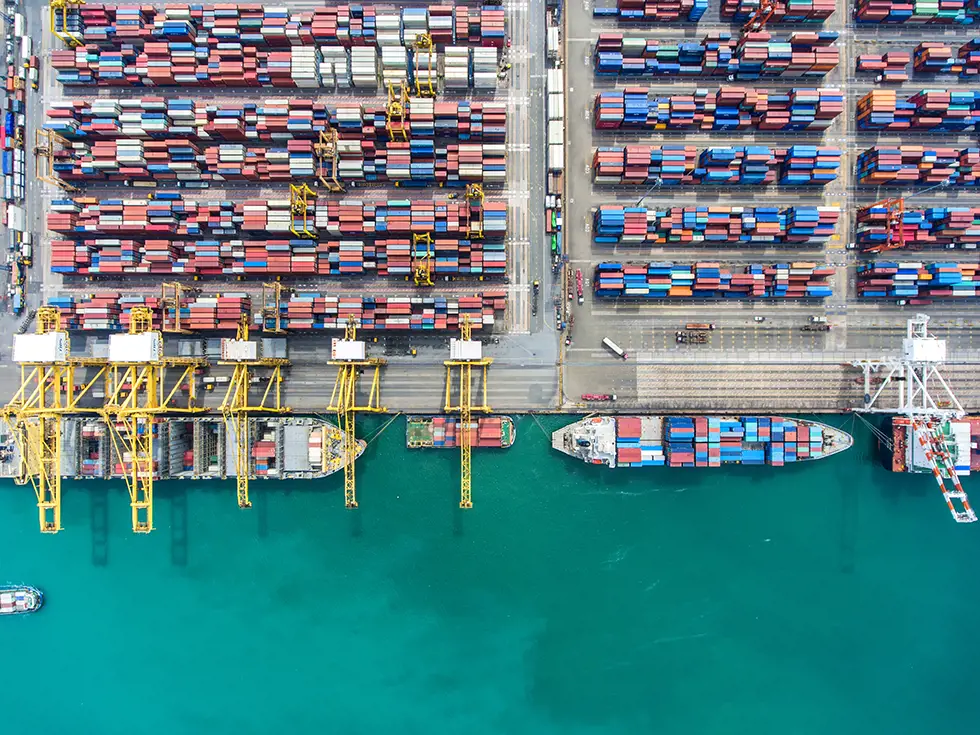In 2021, we reported on Singapore’s new legislative framework for electronic bills of lading. The following 12 months have seen major developments in the UK regarding the legal recognition of electronic trade documents such as bills of lading, such developments which could have significant consequences for the shipping industry and its insurers.
Timeline
The Law Commission published a consultation paper and draft legislation on 30 April 2021 setting out the proposals for law reform concerning 'electronic trade documents'. On 16 March 2022, following the consultation process, the Law Commission published and laid before parliament its revised recommendations and draft legislation.
The Queen’s Speech, delivered on 10 May, set out the government’s legislative agenda for the forthcoming parliamentary session. Included in the 38 Bills announced was the Electronic Trade Documents Bill.
The purpose of the Bill is stated to "put electronic trade documents on the same legal footing as paper documents, removing the need for wasteful paperwork and needless bureaucracy. This will enable businesses to move from paper-based to digital-based transactions when buying and selling internationally. This will help business efficiency and support economic growth".
We will monitor the Bill’s progression through parliament, but its journey to Royal Assent is unlikely to be subject to any major amendments.
The need for reform
It has been estimated that the international trade industry generates four billion paper documents per year. The Law Commission recognises that the present legal position is inefficient and is wholly incompatible to digital processes and transactions.
Paper trade documents such as bills of lading are based on the idea that they can be physically ‘possessed’. The current law in England and Wales does not recognise the possibility of possessing intangible assets like electronic documents, unlike tangible assets. Adoption of electronic documents and the transition to being fully paperless is therefore currently prevented by law.
Proposed ‘gateway criteria’ for electronic documents
The Law Commission’s proposed Bill set out 'gateway criteria' that an electronic document must satisfy in order to qualify as an 'electronic trade document'.
It was recommended that the electronic trade documents should be capable of being possessed, and that this principle should be set out explicitly in the statute. This will enable the electronic trade documents, when capable of possession, to be treated legally in a manner equivalent to paper trade documents.
These gateway criteria are designed to replicate the salient features of paper trade documents and include:
- The electronic document should be susceptible to exclusive control in order to prevent double spending. Only one person or entity must be able to exercise control of the document in electronic form at any one time.
- The electronic document should be fully divested on transfer and the transferor should no longer be able to exercise control of the document when it is transferred.
- A reliable system should be used to ensure that the criteria are satisfied.
Future considerations
International trade, by its nature, involves the transfer of documents across borders resulting in the engagement of complex cross border jurisdictions. To address the numerous issues that arise in these transactions, the Law Commission’s future projects are anticipated to include:
- A review of the private international law aspects of electronic trade documents.
- Examination of conflict of laws as they apply to emerging technology.
- Publication of a digital assets consultation paper on crypto and digital assets (which is likely to consider the work already undertaken on electronic trade documents).
The UK Government has made it clear that it wants to be a world leader in innovation and regulatory reform, and the Law Commission’s future projects are likely to inform the direction any future legislation takes.
Comment
The main objective of these proposed reforms is to ensure that the electronic and paper trade documents have the same effects and are subject to the same treatment – practically and legally - in all respects. While the long term benefits of adapting to a world embracing new technologies are clear, there will be additional risks and costs to consider.
Transition costs, such as overcoming and learning from initial shortfalls in efficiency of the new system, may be high. The physical costs of developing standardised operating procedures and training of users on the new systems will need to be considered. Risk analysis and learnings from potential incompatibility and interoperability due to a lack of standardisation between different operating systems/platforms will also be required.
There may have to be some consideration as to how the shipping community promotes and provides the standard operating procedures to interested parties in other jurisdictions. That may incur considerable additional cost initially but, without such an initiative, it will be difficult to obtain the international standardisation needed for the proposed reforms to work. There is a risk that other jurisdictions will have little interest in incurring such implementation and training costs or those states may have a conflicting interest in promoting their own systems for the production and use of such documents.
All of these additional costs and risks will be significantly offset by the long-term benefits of the new legislation. Allowing for electronic versions of trade documents could lead to significant cost savings and efficiencies, together with improvements in information management and security - especially considering the long trails of paper trade documents generated in international trade.
By introducing this Bill, the government has recognised that if the law of England and Wales fails to keep pace with new technological developments, it risks losing its position of dominance as the jurisdiction of choice in global trade and commerce.
Related items
2022 marine, aviation and logistics forecast: trends and future risks

 Insurance and reinsurance
Insurance and reinsurance
 Shipping and international trade
Shipping and international trade
 Transport and logistics
Transport and logistics
 United Kingdom
United Kingdom